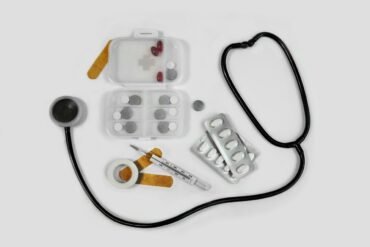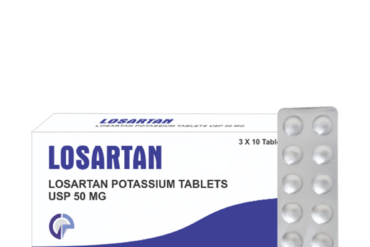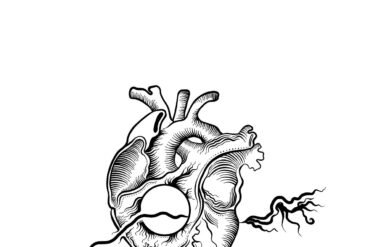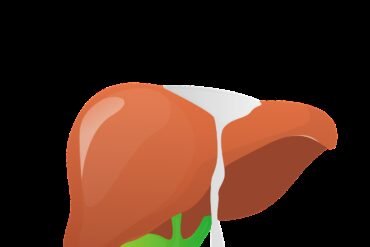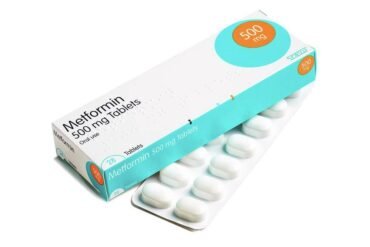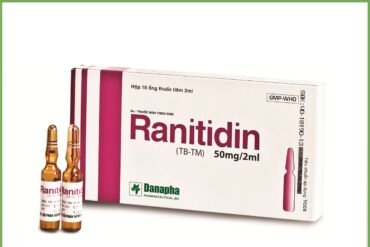Understanding Cholesterol Medications: A Comprehensive Guide

Table of Contents
- Types of Cholesterol Medications
- Common Side Effects and Risks
- How Cholesterol Medications Work
- Choosing the Right Medication
- Lifestyle Changes for Lowering Cholesterol
Types of Cholesterol Medications
When it comes to managing cholesterol levels, various medications play a significant role. While lifestyle changes such as a healthy diet and regular exercise are crucial, cholesterol medications are commonly prescribed by healthcare professionals to assist in lowering cholesterol levels effectively. Here are some commonly prescribed types of cholesterol medications:
- Statins: Statins are the most commonly prescribed cholesterol-lowering medications. They work by blocking the enzyme responsible for producing cholesterol in the liver. This helps reduce LDL (low-density lipoprotein) cholesterol, often referred to as “bad” cholesterol. Statins include medications like atorvastatin, simvastatin, and rosuvastatin.
- Bile Acid Sequestrants: Bile acid sequestrants bind to bile acids, preventing them from being reabsorbed by the intestines. This triggers the liver to produce more bile acids, resulting in lower LDL cholesterol levels. Commonly prescribed bile acid sequestrants include cholestyramine, colestipol, and colesevelam.
- Ezetimibe: Ezetimibe works in the small intestine to inhibit the absorption of cholesterol from food. This medication is often prescribed in combination with statins for better cholesterol control. It can be found both as a standalone drug or combined with simvastatin in a single pill called Vytorin.
- PCSK9 Inhibitors: PCSK9 inhibitors are injectable medications that help lower LDL cholesterol levels. They work by inhibiting the PCSK9 protein, which reduces the breakdown of LDL receptors, allowing more receptors to remove LDL cholesterol from the blood. Some commonly prescribed PCSK9 inhibitors include alirocumab and evolocumab.
- Fibrates: Fibrates primarily target triglycerides, another type of fat found in the blood. By reducing triglyceride levels, fibrates can also raise HDL (high-density lipoprotein) cholesterol, often referred to as “good” cholesterol. Some commonly prescribed fibrates include gemfibrozil, fenofibrate, and bezafibrate.
- Niacin: Niacin, also known as vitamin B3, can help lower LDL cholesterol while increasing HDL cholesterol. It is available both as a prescription and over-the-counter supplement. However, high doses of niacin may cause side effects, so it should be taken under medical supervision.
It’s important to note that the effectiveness and potential side effects of cholesterol medications may vary for each individual. It is crucial to consult with a healthcare professional who can evaluate your cholesterol profile and guide you in choosing the most suitable medication and dosage. Additionally, medication should always be complemented with a healthy lifestyle, including regular exercise and a balanced diet, to achieve optimal cholesterol management.
Common Side Effects and Risks
Although cholesterol medications are generally safe and effective, they can sometimes cause side effects and present certain risks. It is important to be aware of these potential outcomes when taking cholesterol-lowering drugs. Here are some common side effects and risks associated with cholesterol medications:
- Muscle pain and weakness: Some individuals may experience muscle pain, tenderness, or weakness when taking statin medications. This can be a sign of a rare condition known as rhabdomyolysis, which can cause muscle breakdown and lead to kidney damage. If you experience severe muscle pain or weakness, it is crucial to notify your healthcare provider immediately.
- Liver problems: Although rare, cholesterol medications can sometimes cause liver abnormalities. Routine liver function tests are usually performed before starting medication and may be repeated periodically to monitor any potential liver issues. If you notice yellowing of the skin or eyes, dark urine, or persistent fatigue, contact your doctor right away.
- Digestive issues: Some individuals may experience mild gastrointestinal symptoms, such as nausea, diarrhea, or constipation, when taking cholesterol medications. These symptoms are usually temporary and go away on their own. However, if they become severe or persistent, it is important to consult your healthcare provider.
- Increased blood sugar levels: Certain types of cholesterol medications, such as statins, may slightly increase blood sugar levels. This may be of concern for individuals with diabetes or prediabetes. Regular monitoring of blood sugar levels is recommended for people taking these medications.
- Allergic reactions: In rare cases, cholesterol medications can cause allergic reactions. Symptoms may include rash, itching, swelling, dizziness, and difficulty breathing. If you experience any signs of an allergic reaction, seek immediate medical attention.
- Drug interactions: Cholesterol medications can interact with other drugs, including certain antibiotics, antifungal medications, and heart medications. It is essential to inform your healthcare provider about all the medications and supplements you are taking to avoid potential interactions.
It is important to remember that not everyone experiences these side effects, and the benefits of cholesterol medications often outweigh the risks. If you have concerns or questions about the side effects or risks associated with your cholesterol medication, consult your healthcare provider. They can provide personalized guidance and help manage any potential issues that may arise.
How Cholesterol Medications Work
Cholesterol medications are widely prescribed to help manage and lower high cholesterol levels. Understanding how these medications work can help you take control of your health and make informed decisions about your treatment plan.
There are several types of cholesterol medications available, each with its unique mechanism of action. The most commonly prescribed medications include:
- Statins: Statins work by inhibiting an enzyme called HMG-CoA reductase, which plays a crucial role in cholesterol production. By reducing the amount of cholesterol produced in the liver, statins help lower LDL (bad) cholesterol levels.
- Bile acid sequestrants: These medications work in the intestines, binding to bile acids and preventing them from being reabsorbed into the bloodstream. This leads to increased clearance of LDL cholesterol from the body.
- Ezetimibe: Ezetimibe works by blocking the absorption of cholesterol in the small intestine. It reduces both LDL cholesterol and total cholesterol levels.
- PCSK9 inhibitors: These medications help lower LDL cholesterol by targeting a protein called PCSK9, which plays a role in regulating LDL receptor levels. By inhibiting PCSK9, more LDL receptors are available to remove LDL cholesterol from the bloodstream.
Regardless of the type of cholesterol medication prescribed, their primary goal is to lower LDL cholesterol levels, which is a significant risk factor for cardiovascular disease. By reducing LDL cholesterol, these medications help prevent the buildup of plaque in the arteries, reducing the risk of heart attacks and strokes.
It is essential to note that cholesterol medications are often prescribed alongside lifestyle modifications such as a healthy diet, regular exercise, and smoking cessation. These lifestyle changes work synergistically with the medications to optimize cholesterol management and overall cardiovascular health.
If you have been prescribed cholesterol medication, it is crucial to take it as prescribed and follow up with your healthcare provider regularly. They can monitor your cholesterol levels and adjust the medication dosage if necessary.
In conclusion, cholesterol medications work in various ways to lower LDL cholesterol levels and minimize the risk of cardiovascular disease. Understanding the mechanisms of action behind these medications can empower you to actively participate in your treatment plan and make necessary lifestyle changes for optimal health.
Choosing the Right Medication
When it comes to managing your cholesterol levels, choosing the right medication is crucial. With several options available, it can be overwhelming to decide which one is best for you. Here are some factors to consider when selecting a cholesterol medication:
- Statins: Statins are the most commonly prescribed medications for lowering cholesterol. They work by reducing the production of cholesterol in the liver. If you have high LDL (bad) cholesterol or a history of heart disease, statins may be a suitable choice.
- Ezetimibe: Ezetimibe is an alternative medication that works in the intestines to block the absorption of cholesterol. It is often used in combination with statins for individuals who require additional cholesterol-lowering effects.
- PCSK9 Inhibitors: PCSK9 inhibitors are injectable medications that are typically prescribed for individuals with familial hypercholesterolemia or those who do not adequately respond to other treatments. They help reduce the amount of LDL cholesterol in the blood.
- Bile Acid Sequestrants: Bile acid sequestrants are another option for cholesterol management. They bind to bile acids in the intestines, removing them from circulation and lowering LDL cholesterol levels. These medications are often used in combination with other therapies.
- Fibrates: Fibrates are primarily used to increase HDL (good) cholesterol levels and lower triglycerides. They are commonly prescribed for individuals with high triglyceride levels or a specific type of abnormal cholesterol.
While considering the right medication, it is important to consult with your healthcare provider. They will carefully evaluate your cholesterol levels, medical history, and any other underlying conditions you may have to determine the most appropriate treatment. Additionally, they will take into account any potential side effects and drug interactions that may occur.
Remember, medication is only one aspect of managing cholesterol. Lifestyle modifications, such as eating a healthy diet, exercising regularly, maintaining a healthy weight, and avoiding tobacco use, are vital in conjunction with medication to achieve optimal cholesterol levels.
By working closely with your healthcare provider and making informed decisions, you can choose the right medication to effectively manage your cholesterol levels and reduce the risk of heart disease.
Lifestyle Changes for Lowering Cholesterol
Understanding cholesterol medications is crucial for managing your cholesterol levels effectively. However, in addition to medication, making certain lifestyle changes can significantly contribute to lowering your cholesterol. By adopting healthier habits, you can reduce your risk of heart disease and lead a healthier life. Here are some lifestyle changes you can implement:
- Follow a Heart-Healthy Diet: Adopting a diet low in saturated fats and trans fats can help lower your cholesterol. Incorporate more fruits and vegetables, whole grains, lean proteins, and nuts into your diet. Avoid processed and fried foods as they tend to be high in unhealthy fats.
- Manage Your Weight: Maintaining a healthy weight can positively impact your cholesterol levels. Losing excess weight through a combination of regular physical activity and a balanced diet can help lower your LDL (bad) cholesterol while increasing your HDL (good) cholesterol.
- Engage in Regular Exercise: Physical activity plays a significant role in managing cholesterol levels. Aim for at least 30 minutes of moderate-intensity exercise, such as brisk walking, cycling, or swimming, on most days of the week. Consistency is key!
- Quit Smoking: Smoking damages blood vessels, reduces HDL cholesterol levels, and increases the risk of heart disease. By quitting smoking, you lower your cholesterol levels and improve your overall cardiovascular health.
- Limit Alcohol Consumption: Excessive alcohol consumption can lead to high cholesterol levels and other health issues. Moderate alcohol intake is recommended, which means no more than one drink per day for women and two drinks per day for men.
- Manage Stress: Chronic stress can contribute to high cholesterol levels. Find healthy ways to manage your stress levels, such as practicing yoga, meditation, or engaging in hobbies that bring you joy and relaxation.
Implementing these lifestyle changes, alongside cholesterol medications prescribed by your doctor, can help you achieve healthier cholesterol levels and reduce your risk of heart disease. It’s important to consult with your healthcare provider and develop a comprehensive plan tailored to your specific needs and health condition.















